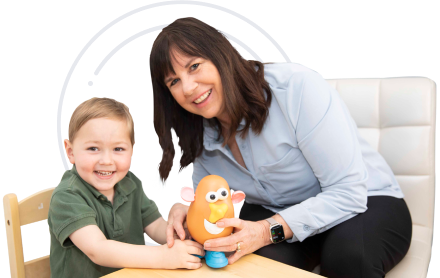Top 10 Best Autism Podcast Episodes of 2020

Want to Learn how to Increase Talking & Decrease Tantrums in Children with Autism or Toddlers Showing Signs?
Want to start making a difference for your child or clients?

Some of my favorite episodes have also had a personal impact on my life. There is the autism success story of Michelle C. whose daughter went from 2 words to over 500 words during the COVID-19 shutdown by taking my courses. Additionally, I loved the Kate Swenson episode where Kate unknowingly addressed an issue that I’d been having in my home and once that interview was over, I was able to fix the problem.
Between solo shows, ABA professionals, autism researchers, speech-language pathologists, nutritionists, parents of children with autism, and adults with autism, I’ve managed to present a wide variety of guests who can share their experience and expertise with you. I feel honored to listen and learn from these guests, and I hope that you’ll continue sharing your thoughts about the best autism podcast episodes by filling out my podcast survey.
Many of you know about my first book, The Verbal Behavior Approach, but you may not realize how much my podcasting has informed my new book Turn Autism Around which will be published in March 2021. I am so thrilled to take what I’ve learned while working with you, your families, and autism professionals, and turn it into a book that will help even more families. It is never too late or too early to make meaningful progress in your family’s journey with autism.
You’ll Learn
- Which episodes listeners overwhelmingly voted for as the most helpful podcast episode of 2020.
- How one of my podcast guests was able to help me with a problem I had been having at home with my son, Lucas.
- That I’ve featured more adults with autism so that parents and professionals can see a fresh perspective.
- About the works of autism professionals who are at the forefront of autism research, and I share some of my favorite insights from their papers and presentations.
Resources
- MaryBarbera.com/workshop (Sign up for a free workshop online for parents and professionals)
- MaryBarbera.com/podcastsurvey
- #053: Dr. Mark Sundberg – Using VB-MAPP to Assess and Teach Language
- #070: Kate Swenson: Finding Cooper’s Voice
- #078: Autism Success Story with Michelle C.
- #080: The Role of Functional Nutrition and Medicine in Autism
- #085: Siblings of Autism: Interview with My Son Spencer Barbera
- #088: Autism in the Media, Dating & Love on the Spectrum | Interview with Dr. Kerry Magro
- #090: Apraxia and Autism: What is Apraxia of Speech | Interview with Tamara Kasper
- #093: Autism Detection: A Summary of Dr. Ami Klin’s Autism Work
- #095: Dr. Keith Williams: Tackling Selective Eating in Children with Autism
- #100: What Does Turn Autism Around Mean to You?